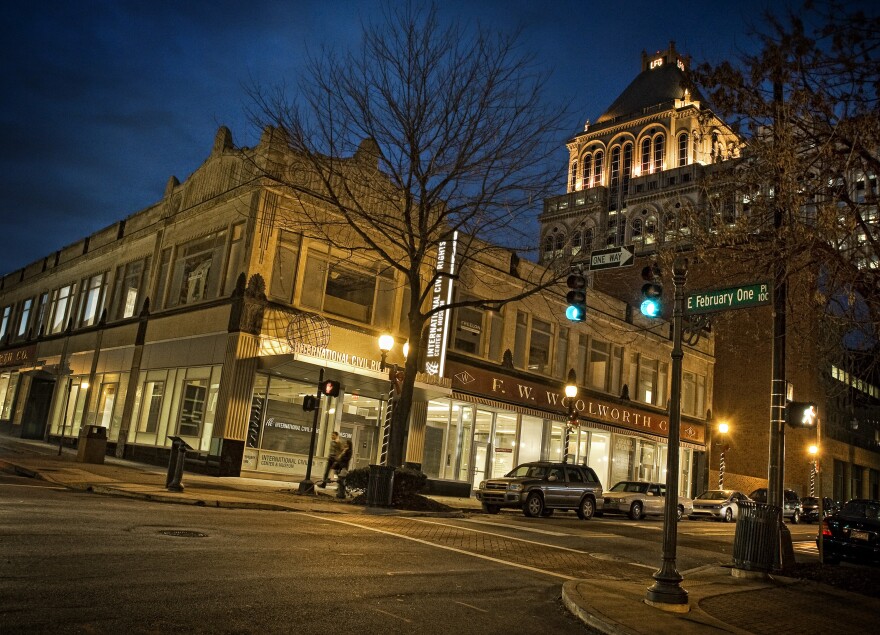Duke Energy might again cut off the lights at the International Civil Rights Museum in Greensboro, unless the nonprofit makes payments on an $18,000 credit deposit.
Duke mandated the deposit following an alleged late payment earlier this year. Duke shut off the museum's lights for a few hours one day in February. The museum refunded visitors that day, during Black History Month, its busiest time of year.
Duke Energy spokesman Mike Hughes says the electricity company did not cut the power until after the museum's largest annual fundraiser, despite having issued more than 20 disconnection warnings for late or partial bill payments. Duke is a major donor to the museum.
Museum CEO John Swaine said he submitted February's payment on time via mail and the shut-off was in error. But, Swaine agrees with Duke that the museum has struggled to meet its utility bills before.
"My revenue for admissions for a particular month might be as low as $25,000. Well if I'm paying almost half of that to Duke Energy, that leaves me very little to pay some of the other obligations," he said.
Duke Energy spokesman Mike Hughes says the company is required by state regulation to levy deposits from customers who fail to pay bills consistently and in full.
"To insulate other customers, we have to secure those accounts, to insure that any past due amount or any defaulted amount, that that's not a cost borne by other customers," Hughes said. "We don't want to cut a customer off. We don't make money when a customer's service is discontinued. Beyond that, the museum is a very, very important customer of ours. We recognize that it also holds a very special place in terms of its significance."
The museum is the site of an historic Civil Rights Era sit-in. The original lunch counter where four young black men asked to be served coffee in defiance of the F.W. Woolworth department store's segregation policy is still on display, under bright lighting.
The museum's attorney has submitted a letter to the state utilities commission asking that Duke's request for a deposit be dismissed. The North Carolina Utilities Commission will review the complaint and decide whether Duke Energy acted according with regulation.










